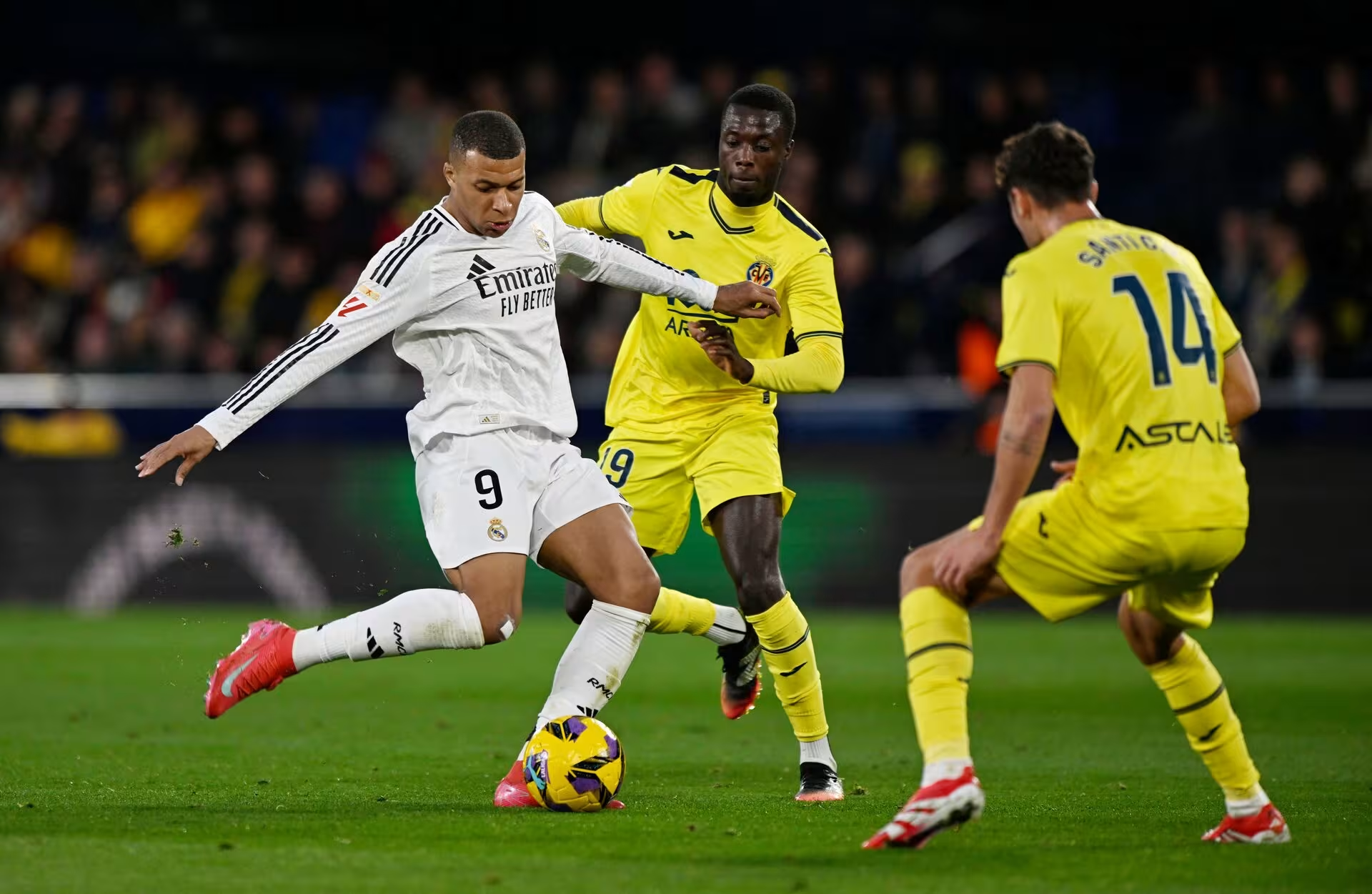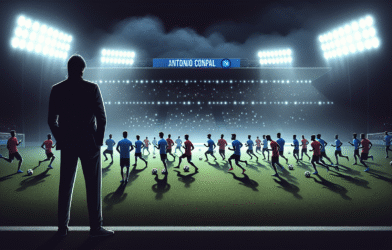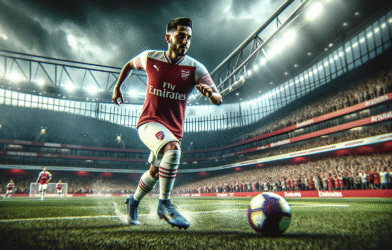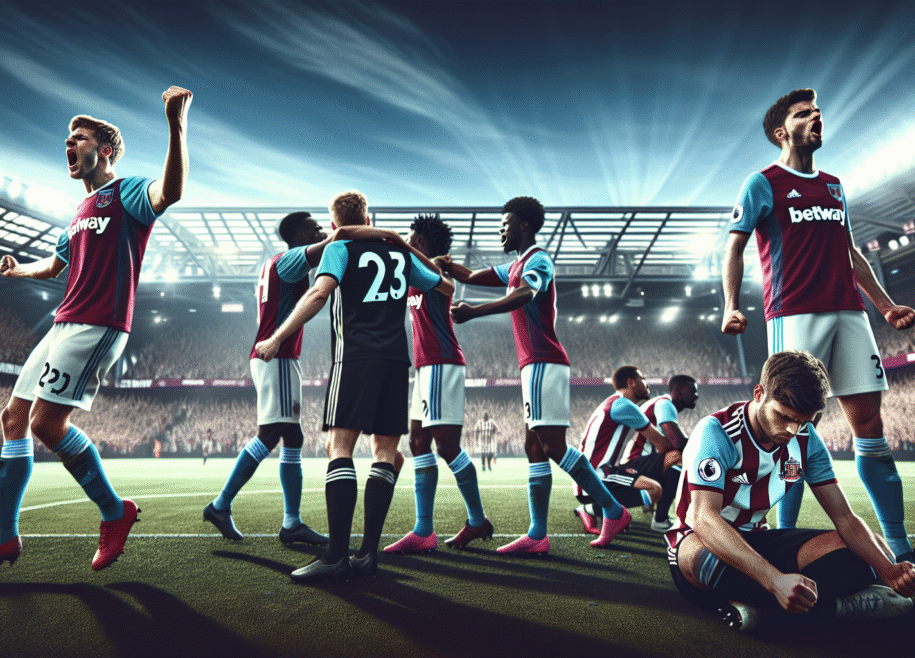Subtotal $0.00
Match context and atmosphere at the Bernabéu
From the opening whistle, Real Madrid Villarreal win at the Bernabéu looked inevitable as Los Blancos dictated the tempo with their trademark passing game. The stands hummed with anticipation as Carlo Ancelotti’s men pressed high, pinning Villarreal back and turning the early exchanges into a display of control. The hosts moved the ball with patient precision, inviting the visitors to chase and then exploiting gaps with sharp movement. The atmosphere sharpened Madrid’s belief that this season’s progress is translating into tangible results, a precursor to a convincing performance being etched into the match report as the Real Madrid Villarreal win began to take shape.
Villarreal offered resistance through quick transitions and bursts of pace, yet the Bernabéu crowd sensed that each passing phase was building toward a decisive moment. Madrid’s defensive shape held firm; when the ball spilled into midfield, Jude Bellingham began to influence the game, dropping deep to collect, then bursting forward into spaces that appeared throughout the middle of the park. Vinícius Júnior teased down the left and Rodrygo linked with him to stretch the visitors’ back line. This start suggested the night would be dominated by Madrid’s rhythm and ambition. For context, see the official reports from Real Madrid official site and La Liga match page.
Madrid’s midfield masterclass: Bellingham at the helm
Jude Bellingham took the reins in the middle, turning the midfield into a launchpad for Real Madrid’s attacking ambitions. He pressed relentlessly, recovered balls in dangerous zones, and orchestrated transitions with a calmness beyond his years. His ability to read the game allowed the team to maintain rhythm even when Villarreal tried to disrupt tempo. Importantly, Bellingham’s aggression wasn’t reckless; it was purposeful, and it carried a tangible reward as he later added a goal that underscored his growing influence in Ancelotti’s system.
Beyond the goal, Bellingham’s distribution stitched defence to attack with clean, forward passes that cut through lines and found runners in behind. He anchored the tempo, fed the ball to wide players when needed, and tightened the space between the lines as Madrid pressed vertically. The Dutch-born forward’s movement off the ball created space for teammates to exploit, turning simple possession into meaningful chances. This performance reinforced that the Real Madrid Villarreal win wasn’t a flash in the pan but the result of sustained midfield control that has become a hallmark of the team’s evolution.
Vinícius Júnior’s pace and creativity
Vinícius Júnior offered menace with every touch, his pace bending Villarreal’s defensive shape and pulling the backline out of position. The Brazilian’s bursts down the left created half-chances and stretched the visitors’ shape, enabling teammates to exploit the spaces that opened centrally. His willingness to take on defenders in wide areas put Madrid on the front foot repeatedly, and his creativity found routes into the box for late runs from Rodrygo and others. This continuous threat was a driving force behind the Real Madrid Villarreal win appearing increasingly likely as the minutes ticked by.
Vinícius’s influence extended beyond carries; his willingness to drop into pockets and link with Bellingham helped Madrid maintain pressure without sacrificing balance. The combination play with Rodrygo repeatedly unlocked moments of opportunity, and his intelligent decision-making in the final third kept Villarreal on the back foot. The Brazilian’s performance epitomized Madrid’s attacking intent that night: fast, fluid, and relentlessly forward-looking, making it difficult for the visitors to settle into a defensive rhythm.
Rodrygo’s clinical finishing adds to Madrid’s firepower
Rodrygo provided the finishing touch that complemented Vinícius’s work, converting opportunities with a crisp, clinical edge. His movement in and around the box created space for late runs from teammates and his own finishing act underscored Madrid’s efficiency in front of goal. Each touch carried purpose, whether drawing defenders or converting a precise chance into a goal. The Rodrygo moment was a clear signal that Madrid’s forward line is not merely influential but merciless when opportunities arise, reinforcing the real strength of the Real Madrid Villarreal win.
What stood out was his ability to combine with teammates in quick exchanges and to anticipate where the ball would arrive next. His willingness to arrive late in the box, coupled with accurate striking, meant Madrid could convert pressure into goals rather than merely creating chances. The efficiency of Rodrygo’s finishing added a sharp edge to Madrid’s attack, helping to convert dominance into a comfortable result as the Real Madrid Villarreal win became increasingly tangible.
Defensive solidity led by Antonio Rüdiger
Antonio Rüdiger anchored Madrid’s rearguard with authoritative organization, reading the game and directing the line with confidence. His leadership ensured Villarreal’s counterattacks were blunted before they could threaten, and his communication helped maintain compactness between the centre-backs and the defensive midfielders. The German defender’s presence gave the team a platform from which to build attacks, while his clearances and smart interventions minimized the visitors’ clear-cut opportunities, contributing significantly to the sense of a secure Real Madrid Villarreal win.
Rüdiger’s influence extended to his ball distribution as well; he helped reset play from the back with accurate long passes that opened angles for the wingers and the midfielders. This two-way contribution—defensive discipline and risk-aware distribution—was pivotal in preserving the lead and maintaining control. In short, Madrid’s defensive resilience under Rüdiger’s leadership translated into a robust performance that supported a dominant overall display.
Carlo Ancelotti’s evolving system and team cohesion
The tactical setup showed signs of a growing, balanced system taking shape under Ancelotti. Madrid pressed with intent, possessed with purpose, and moved in a way that suggested improved cohesion across all lines. The coach’s choices—how he rotated positions, integrated Bellingham’s midfield pressing with Vinícius’s wide threat, and maintained verticality in the attack—reflected a team that is becoming harder to defeat and more capable of controlling games against brisk, counter-punching teams. The Real Madrid Villarreal win was a practical demonstration of a system starting to click.
Transitions between phases looked smoother, with defenders stepping into midfield zones to prevent overloads and attackers tracking back to help the full-backs when necessary. Ancelotti’s evolving approach emphasized balance, patience in build-up, and the ability to switch gears quickly when opportunities arose. This growing cohesion is the backbone of Madrid’s title credentials, and the win served as a clear marker of progress in the early stages of the campaign.
Villarreal’s counterattacks and Madrid’s response
Villarreal tried to leverage pace on the break, attempting to exploit space behind Madrid’s high line. Yet Real Madrid’s compact shape and quick reloading stifled most counter moves. When the visitors did break, Madrid’s defenders recovered quickly and smothered the threat with disciplined marking and timely interceptions. The visitors found occasional gaps, but the home team’s readiness and organization prevented sustained momentum, keeping the scoreline in their control and reinforcing the impression of a resilient Real Madrid Villarreal win.
Madrid responded with measured, effective transitions, feeding the ball to Bellingham and Vinícius to stretch the park and invite decisive passes into dangerous zones. The approach combined heart, pressing energy, and clinical finishing, a combination that allowed Madrid to convert pressure into reward. The visitors’ counterattacks were repelled with composure, and the home side’s willingness to maintain structure paid dividends as the game wore on.
What this win means for Real Madrid’s title bid
This result sends a strong signal to rivals that Real Madrid are not only back in form but also building momentum for the run-in. The win strengthens Madrid’s position in the table and reinforces their claim as authentic title contenders. The blend of Bellingham’s authority, Vinícius’s genius, and Rodrygo’s finishing, anchored by Rüdiger’s leadership and Ancelotti’s evolving system, suggests the team is developing the depth and cohesion required to sustain a title push throughout the season. The Real Madrid Villarreal win thus becomes a blueprint for the campaign ahead.
As Madrid look ahead, the key will be consistency across competitions and continuing to exploit the balance between attack and defense. If the side can maintain this level under pressure, the early-season assurances will translate into late-season credibility. With players growing into their roles and the system revealing its potential, the trajectory points toward a competitive title bid that Madrid can sustain through the critical fixtures ahead.
















